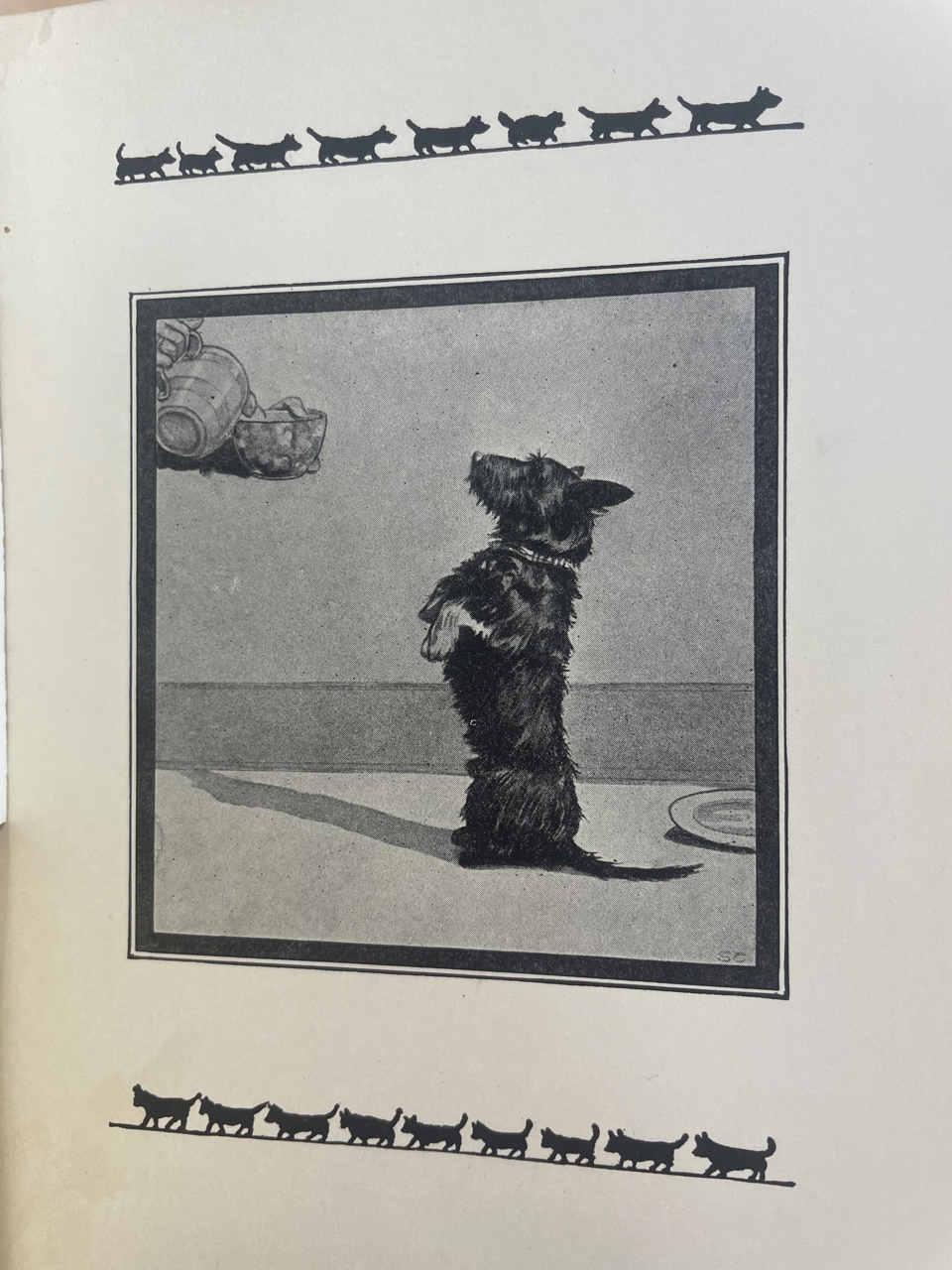Dear Margaret,
I was at the bookstore the other day when I saw this darling little book in the shop window. It sat on a table right in view for a little girl or boy to see if they were to turn their head in the direction of the store. The little dog on the bright mustard yellow cover is powerful enough to entice any wandering and bored child to pull on their mother’s sleeves and beg for a few coins. I find I must tip my hat to whatever bookstore employee thought of this ingenious, albeit slightly sadistic trick.
However, it worked; I succumbed to its temptress call. I saw the little Scottish terrier and I couldn’t help but think of you and the damn childhood mutt you loved so much. I still recall the day when you somehow convinced our father to allow you to have one of the puppies of the Jones family’s Scottish terrier. I must admit, sister, that I think the only reason why Mrs. Jones gave you the puppy was because she thought you would marry her slimy, leech of a son. As you will find, the image of the dog on the cover also appears in the frontispiece. You must admit that he resembles your once beloved Duke. You will also find that somewhere in the book, I can’t recall the page, I fear, there is an image of the little dog begging its owners for food on their table in an uncanny similarity to your Duke. If it weren’t for the dedication page saying “to the memory of ‘Socks,’” I would believe that this Sewell Collins fellow was secretly Mrs. Jones’ son.
Good heavens, I remember those mornings. For some reason, that dog chose me, of all people, to beg for scraps of food—the only person in the house who couldn’t stay in its presence without sneezing. But it was cute how it would sit on its hind legs and look upon us with its bright brown eyes. The lights from the room reflected in his eyes as he looked towards the two people most likely to take pity on him. For a dog, he was a clever creature targeting the school girls at the table.
However, I would also like to draw your attention to the epigraph at the beginning of the book. I don’t know if you would recognize it, but I remembered reading it for one of my classes in my early days of law school. The speech was given by Senator George Graham Vest when he was a mere lawyer. It brought me comfort during those lonely, dreary days, seeing a man talk so diligently about a dog. However, it brought me further joy to see all the men in my class fumble for the reason behind the speech. Their brazen act to flaunt their intelligence in front of the few women in the class resembled that of male birds in spring.
Oh, my Margaret, I wonder how you are faring. I imagine how busy you are dealing with your precious school kids. I can only imagine how difficult it must be to stand in front of a classroom of young children who might have lost their fathers or brothers to the war. As far as mother and father tell me, you teach junior high. This must mean that these children lost their fathers at a young age. I can only imagine the difficulty that this causes; the absence of their presence at home that bleeds into the classroom. I hope that this book will allow you to simultaneously teach and ease their sorrows. The first stanza, as I’m sure you're able to recall from your days in the Rubáiyát society back in college, is similar to the first stanza of Edward Fitzgerald’s version. “And I a drowsy Step or Two must creep/And flop into its gentle Warmth once more” will hopefully create a laugh in your classroom.
But really, it is the last stanza that I hope will provide you and your students the most comfort. “And when that Time comes, Master, if in vain/ I seek a Paradise for Dogs, I fain/ (If, as some say, there’s no such Place for me)/ Would dwell just in your Thoughts- and not complain.” You must know that your dear William remains in my prayers, as do your students’ dead fathers and brothers. And, Margaret, I want you to know that you will see him again walking alongside Duke in Heaven above. I’m so terribly sorry that I couldn’t attend to you when you received that letter. How cruel it must have been. Distant. Impersonal. To know your husband died overseas fighting the Germans.
I will never forgive myself for failing as your older sister. Just know that even states away, I still think of you so. You are my baby sister, and I, your loyal dog. I can’t wait to see you this Christmas at our parents’ house. We have much to discuss.
Your beloved sister who thinks of you still,
Mary


